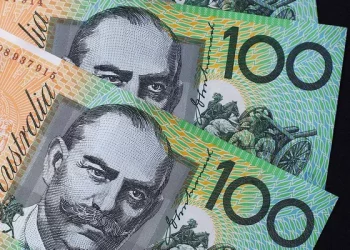Before diving into the specifics of converting 500 Thai Baht (THB) into Hong Kong Dollars (HKD), it is essential to understand the concept of exchange rates. An exchange rate is the value of one currency for the purpose of conversion to another. It plays a critical role in international finance and everyday transactions involving foreign currencies. Exchange rates can be floating, where they change depending on market forces, or fixed, where they are set by a country’s government or central bank.
Floating exchange rates fluctuate based on supply and demand in the foreign exchange market, influenced by economic indicators, interest rates, inflation, and political stability. This means that the value of THB to HKD can vary daily, and anyone planning to convert money should be aware of the current rate to ensure a fair exchange.
Factors Influencing the Thai Baht to Hong Kong Dollar Exchange Rate
Several factors influence the THB to HKD exchange rate. These include but are not limited to:
- Economic stability: Countries with stronger, more stable economies tend to have stronger currencies. Thailand’s and Hong Kong’s economic performance directly affects the exchange rate.
- Interest rates: Higher interest rates offer better returns on investments in that currency, increasing demand and subsequently the value.
- Inflation rates: Lower inflation typically strengthens a currency, as purchasing power is preserved.
- Political events: Elections, policy changes, and geopolitical tensions can affect investor confidence and cause volatility.
- Central bank policies: Both the Bank of Thailand and the Hong Kong Monetary Authority influence monetary policy, which can impact exchange rates.
Being aware of these factors helps investors and travelers make more informed decisions when exchanging currencies.
How to Check the Latest Exchange Rate
Finding the current exchange rate between Thai Baht and Hong Kong Dollar can be done in several convenient ways:
- Online currency converters: Websites like XE, OANDA, and Google Currency Converter offer real-time exchange rates.
- Bank websites and mobile apps: Most financial institutions provide up-to-date exchange rates for currency conversion.
- Financial news platforms: Bloomberg, Reuters, and similar sources provide regular updates on foreign exchange markets.
- Forex trading platforms: These platforms are used by traders but also offer accurate exchange rates.
It’s crucial to check more than one source to ensure you are getting an accurate and up-to-date rate, especially if you are dealing with a large amount of money.
Conversion Example: How Much is 500 Thai Baht in HKD?
To give a practical example, let’s consider a hypothetical exchange rate of 1 Thai Baht = 0.22 Hong Kong Dollar. This means:
500 THB x 0.22 = 110 HKD
So, if the exchange rate remains constant at 1 THB = 0.22 HKD, 500 Thai Baht would be worth approximately 110 Hong Kong Dollars.
However, exchange rates are rarely fixed. They fluctuate depending on various market conditions. For this reason, the amount of HKD you receive for 500 THB may vary daily.
Banks vs. Money Changers: Where to Convert Your Money
When it comes to converting currency, you have several options:
Banks
- Offer secure transactions
- Slightly lower exchange rates due to service fees
- Convenient for those with bank accounts
Money Changers
- Often found at airports, shopping centers, and tourist areas
- May offer competitive rates, especially in high-volume locations
- Some may charge commission or fees
Online Platforms and Apps
- Services like Wise (formerly TransferWise) and Revolut offer digital currency exchange
- Lower fees compared to traditional banks
- Quick and convenient
Airport Exchange Counters
- Extremely convenient but usually offer the least favorable rates
- Best for emergency cash needs only
Tips for Getting the Best Exchange Rate
To maximize the amount of HKD you receive when converting from THB, follow these tips:
- Compare rates from multiple sources: Don’t settle for the first rate you see.
- Avoid airport exchange counters: These typically have high fees and low rates.
- Use currency exchange apps: Track rates in real time to convert at the most favorable moment.
- Check for hidden fees: Always ask about service charges or commissions before confirming the exchange.
- Use international banking services: Some accounts offer better exchange rates and lower fees for international transactions.
Historical Perspective on the THB to HKD Exchange Rate
Understanding historical trends can provide valuable context. For example, in the last decade, the exchange rate of THB to HKD has ranged roughly between 0.21 and 0.26. This variance may seem small, but over large sums, it can significantly impact the value of your converted money.
During periods of economic uncertainty or political instability in either Thailand or Hong Kong, the rate tends to fluctuate more. Conversely, stable economic growth in both countries often leads to a more predictable exchange rate.
Using Currency Conversion for Travel Planning
If you are planning to travel from Thailand to Hong Kong, knowing how much your money is worth in local currency is crucial. Here’s how 500 THB may cover expenses in Hong Kong:
- Public transport fare: Around 10-20 HKD
- A local meal: Approximately 40-60 HKD
- Snacks or drinks: 10-15 HKD
- Museum entry: Around 30-50 HKD
So, 500 THB (assuming it’s worth about 110 HKD) can cover a day of budget travel in Hong Kong, including meals and transport.
Currency Hedging and Investment Implications
For businesses or individuals dealing with large amounts of currency, small shifts in the THB to HKD rate can lead to significant gains or losses. In such cases, hedging strategies are used to minimize risk. These include:
- Forward contracts: Lock in a rate for a future date
- Currency options: The right, but not the obligation, to exchange at a specific rate
- Currency swaps: Exchange cash flows in different currencies
These tools are typically used by exporters, importers, and multinational companies but are becoming more accessible to retail investors as well.
Legal and Regulatory Considerations
It is also important to be aware of legal requirements when exchanging currency, particularly large sums. Both Thailand and Hong Kong have regulations in place to monitor large transfers to prevent money laundering and ensure compliance with international laws.
- In Thailand, you may need to declare foreign currency exceeding a specific threshold when entering or leaving the country.
- In Hong Kong, while the city operates as a free port, large cash transactions may be scrutinized under anti-money laundering laws.
Always consult with a financial advisor or the relevant regulatory authority if you plan to exchange a significant amount.
Currency Conversion in the Digital Age
The rise of fintech has revolutionized currency exchange. Mobile apps and online platforms now offer:
- Real-time tracking of exchange rates
- Easy transfers between currencies
- Lower fees compared to traditional banks
- Transparent fee structures
Some popular platforms include:
- Wise: Offers real exchange rate with a low upfront fee
- Revolut: Multi-currency account with competitive rates
- PayPal/Xoom: Useful for sending money internationally
- OFX: Great for large international money transfers
These platforms provide more control and often better value, making them an excellent option for tech-savvy users.
Conclusion
Knowing how much 500 Thai Baht is in Hong Kong Dollars involves more than a simple mathematical conversion. It requires an understanding of the current exchange rate, the factors that influence it, and the various platforms and methods available for conversion.
By staying informed and vigilant, you can make the most of your currency conversions, whether you’re a traveler, investor, or businessperson. Converting 500 THB to HKD may not be a massive transaction, but understanding the process will equip you for more significant financial decisions in the future.
Related Topics:

























